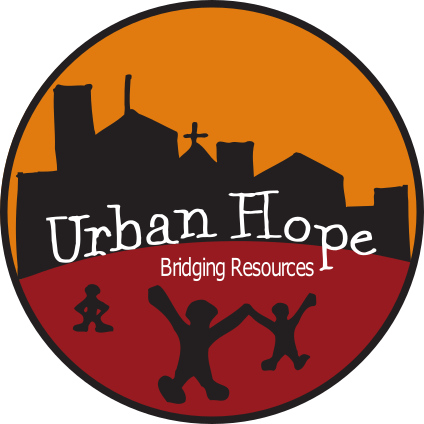The Sweet Smell of Succession Planning
/“But thanks be to God, who in Christ always leads us in triumphal procession, and through us spreads in every place the fragrance that comes from knowing him”
I recently spoke with a Durham business leader who is working on ways to pass down the wisdom and wealth he has accrued over the years by creating access to opportunities and resources for the next generation of entrepreneurs in the city. I told him I was in the process of doing the same thing for young adults looking to make an impact in the lives of youth. Our mutual vision for succession planning renewed my spirit and reaffirmed my determination to sustain the success Urban Hope has achieved in over 15 years of working in Walltown. As I prepare to leave, I am determined to elevate the gifts of the young adult leaders around me—their skills, their passions, their knowledge, and their experience—and create with them an organizational context and structure in which they can thrive and flourish. Last month, after recuperating from an amazing and intense summer, Robert, Jennifer, and Isaiah (the three people who will take over for me starting in January) began meeting with the Urban Hope Leadership Team to set in motion their vision for the ministry. What I have discovered from my time with them is that succession planning is a process of maturation. It takes maturity to pivot in a new direction. It takes maturity to embrace change. It takes maturity to accept the responsibility of leadership. I am honored and excited to walk with the three of them as their growth and maturity ignites a new chapter in our mission to raise up generations of young heroes in the neighborhood, city, and beyond.
When I came on board in June 2013, I thought of myself as a “bridge” director, someone who could build upon the foundation laid by our founding director, Bahari Harris, by creating pathways to leadership for young adults from Walltown. During my tenure, Robert (Young Leaders Group coordinator), Jennifer (academic coach at the Walltown Aspiring Youth after school program), and Isaiah (basketball coach and assistant director of the Urban Hope Summer Camp) have served as key leaders in our Young Hero Labs. They have unique personalities but share a common heart for youth. They love our community and are prepared to lead us into the future.
This summer, in order to prepare for the transition, we sent Robert to a four-week urban ministry program in Compton, California. While there, he worked with local residents and other program participants to renovate a school building, facilitate leadership activities for high school students, and lead a summer camp for younger kids. Upon returning, he shared how he came to learn from people who he assumed had nothing to teach him. I thought to myself, that is growth, that is the mark of maturity.
After five and a half years of leading Urban Hope, I have grown and matured as well. I am not perfect nor have I perfected the craft of building community, but I have received the healing and wisdom intended for me in this phase of my journey. I have failed and made mistakes and been met with grace-filled rebuke and forgiveness. I have had my heart broken by the mistakes of our youth and been restored in the process of walking with them through the consequences of their actions (this, too, is a grace). Through it all, I have deepened my understanding of MLK’s belief that we live in “an inescapable network of mutuality.” By living and working in Walltown, I have deepened my conviction that we cannot become who we are called and created to be without first realizing that we belong to one another.
Throughout history, many groups of people have believed that cultivating a sense of belonging among themselves necessarily means excluding and discriminating against others. I believe that in the story of Jesus we find an alternative vision. For Jesus, being Jewish did not mean that he was superior or inferior to others. Being Jewish did not restrict him from embracing people of other ethnicities as fellow human beings. In fact, understanding himself inside of Jewish history, culture, and identity gave him the ability and confidence to understand and embrace other people’s history, culture, and identity. When you lack confidence about who you are and where you come from, you are apt to respond to those who are different than you with fear, hostility, and apathy. That is why we invest in building a cultural and spiritual foundation for our young people, exploring Black history, culture, and identity through the eyes of God. That is why we tell the story of Walltown and its residents over and over again. That is why we venture on pilgrimages to other places, so that we might develop relationships with other people and come to understand that they, like us, are sacred in the sight of our creator.
As I venture on to new work, I offer my sincere thanks for the generous support you have given me as director and ask that you continue to support our development of young people. Robert, Jennifer, and Isaiah know who they are and where they come from. They know what it means to belong and are becoming the kind of people and leaders they have been called and created to be. Next month, you will receive the first of many letters from them, offering a deeper introduction into who they are and where they plan to take the ministry. Continue to pray, volunteer, and give financially as they blaze the next trail of Urban Hope’s journey. May your generosity be part of a mutual process of growth and maturity.




